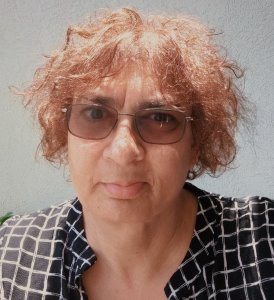
MJSA Conference Keynote Lecture: “Three Ways of Queering Jewish and Israeli History”
Iris Rachamimov
Monday, September 16, 6:15 - 7:15 PM
Michigan Union, Pendelton Room
In the past three decades, queer-identified scholars have been producing studies that deal with Jewish queer subjectivities and sexual practices. Inspired by the rise of queer theory, researchers the 1990s and the first decade of the 21st century laid the groundwork to “Jewish Queer Studies.” The addition of Trans, Mizrahi and Israeli queer perspectives expanded the topic significantly in recent years with a plethora of publications in various languages. This lecture aims to reflect on the insights, potentials and blind spots of three main approaches to queering Jewish and Israeli Studies:
1) The examination of present and historical queer selfhoods.
2) The development of activist scholarship aimed at generating politically useful knowledge
3) The adoption of queer theoretical perspectives and terminology to analyze both queer and non-queer modes of life.
The lecture will attempt to show how queering Jewish Studies could be a very fruitful even for those scholars who do not necessarily identify as queer.
Iris Rachamimov
Monday, September 16, 6:15 - 7:15 PM
Michigan Union, Pendelton Room
In the past three decades, queer-identified scholars have been producing studies that deal with Jewish queer subjectivities and sexual practices. Inspired by the rise of queer theory, researchers the 1990s and the first decade of the 21st century laid the groundwork to “Jewish Queer Studies.” The addition of Trans, Mizrahi and Israeli queer perspectives expanded the topic significantly in recent years with a plethora of publications in various languages. This lecture aims to reflect on the insights, potentials and blind spots of three main approaches to queering Jewish and Israeli Studies:
1) The examination of present and historical queer selfhoods.
2) The development of activist scholarship aimed at generating politically useful knowledge
3) The adoption of queer theoretical perspectives and terminology to analyze both queer and non-queer modes of life.
The lecture will attempt to show how queering Jewish Studies could be a very fruitful even for those scholars who do not necessarily identify as queer.